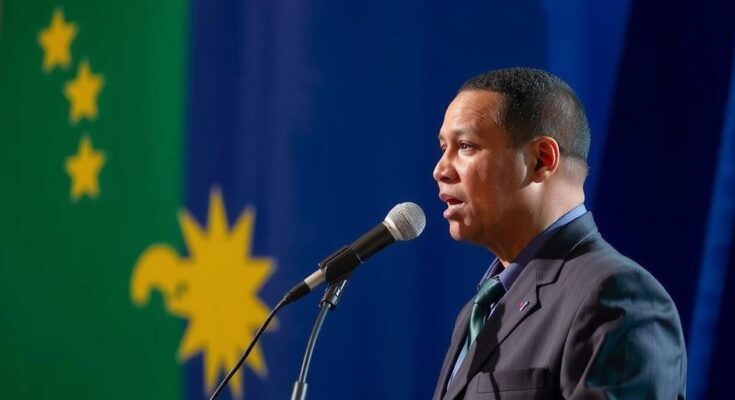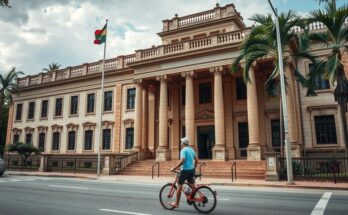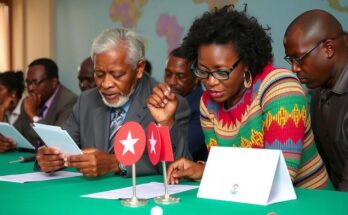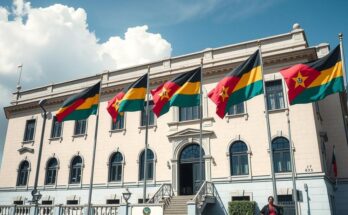Mauritius is set to conduct a national election amid a wiretapping scandal involving government officials, creating heightened tensions in the political landscape. Prime Minister Pravind Kumar Jugnauth seeks re-election while facing pressure from opposition groups, including Navin Ramgoolam’s Labour Party. Key issues include rising living costs, crime, and calls for transparency, all of which will influence voter decisions in this crucial election for the nation’s democratic future.
Mauritius is poised to hold its 12th national election amid serious allegations surrounding a government-sanctioned wiretapping scandal. Approximately one million eligible voters will cast their ballots on Sunday, in an election that has become overshadowed by leaked audio recordings implicating high-ranking officials in covert surveillance involving opposition members and civil society figures. This election marks a pivotal moment for the nation’s stable democracy, historically recognized for its fair electoral processes and high voter turnout, which typically approaches 80 percent. The discovery of the wiretapping scandal has intensified tensions in the campaign, forcing the incumbent Prime Minister Pravind Kumar Jugnauth to announce a judicial inquiry and hint at potential manipulation of the recordings. Authorities recently enacted a controversial social media ban—subsequently lifted—citing national security, though critics argue this was an attempt to suppress further leaks ahead of the election. With an economy showcasing a GDP per capita significantly higher than that of regional counterparts, Mauritius’s political climate remains deeply influenced by its historical struggles and multi-ethnic demographics. The three main political players—Prime Minister Jugnauth’s MSM, Navin Ramgoolam’s Labour Party, and Nando Bodha’s Linion Reform—each present unique platforms in response to prevalent issues like rising living costs, drug-related crime, and calls for greater transparency in governance. Ramgoolam has focused his campaign on addressing the wiretapping allegations while proposing legislative measures to criminalize such actions if he gains office. Conversely, PM Jugnauth aims to highlight his government’s recovery efforts from the pandemic and promises reforms to alleviate commodity prices. As the election approaches, critical issues such as economic recovery, public safety, and preserving civil rights loom large. Mauritians are seeking a transparent electoral process that upholds the tenets of democracy, while the implications of this election could have lasting effects on the future of governance in Mauritius, particularly regarding foreign investments and tourism.
The upcoming election in Mauritius occurs within a context of significant political tension generated by allegations of wiretapping involving government officials. This incident has dominated the election narrative, with rising discontent amongst the electorate regarding issues such as living costs, corruption, and civil liberties. Historically, Mauritius has portrayed a stable parliamentary democracy since its independence, making this election critical to the nation’s democratic integrity and economic stability. High living standards and a diversified economy contrast with issues of socio-political discontent, further complicating the election’s dynamics.
The Mauritius election represents a crossroads for the nation’s political landscape amidst serious allegations of government wiretapping. The outcome will likely shape the future of civil rights and governance, particularly given the prevailing economic challenges and societal demands for transparency and accountability. As parties vie for power, voters must navigate a complex tapestry of issues that could redefine democratic norms in this historically stable nation.
Original Source: www.aljazeera.com




